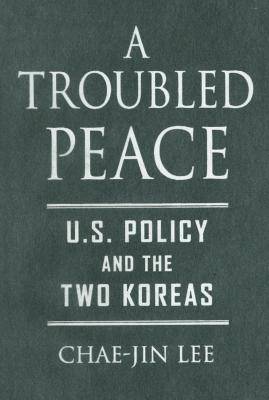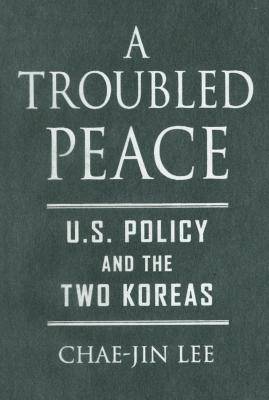
- Afhalen na 1 uur in een winkel met voorraad
- In januari gratis thuislevering in België
- Ruim aanbod met 7 miljoen producten
- Afhalen na 1 uur in een winkel met voorraad
- In januari gratis thuislevering in België
- Ruim aanbod met 7 miljoen producten
Omschrijving
In A Troubled Peace, Professor Chae-Jin Lee reviews the vicissitudes of U.S. policy toward South and North Korea since 1948 when rival regimes were installed on the Korean peninsula. He explains the continuously changing nature of U.S.-Korea relations by discussing the goals the United States has sought for Korea, the ways in which these goals have been articulated, and the methods used to implement them.
Using a careful analysis of declassified diplomatic documents, primary materials in English, Korean, Japanese, and Chinese, and extensive interviews with American and Korean officials, Lee draws attention to a number of factors that have affected U.S. policy: the functions of U.S. security policy in Korea, the role of the United States in South Korea's political democratization, President Clinton's policy of constructive engagement toward North Korea, President Bush's hegemonic policy toward North Korea, and the hexagonal linkages among the United States, China, Japan, Russia, and the two Koreas.
Drawing on concepts of containment, deterrence, engagement, preemption, and appeasement, Lee's balanced and thoughtful approach reveals the frustrations of all players in their attempts to arrive at a modicum of coexistence. His objective, comprehensive, and definitive study reveals a dynamic--and incredibly complex--series of relationships underpinning a troubled and tenuous peace.
Specificaties
Betrokkenen
- Auteur(s):
- Uitgeverij:
Inhoud
- Aantal bladzijden:
- 376
- Taal:
- Engels
Eigenschappen
- Productcode (EAN):
- 9780801883309
- Verschijningsdatum:
- 1/04/2006
- Uitvoering:
- Hardcover
- Formaat:
- Genaaid
- Afmetingen:
- 157 mm x 235 mm
- Gewicht:
- 621 g

Alleen bij Standaard Boekhandel
Beoordelingen
We publiceren alleen reviews die voldoen aan de voorwaarden voor reviews. Bekijk onze voorwaarden voor reviews.









